‘I was drugged and abused by my partner for a year. How many more Gisele Pelicots are there?’
The case of Gisele Pelicot, whose husband Dominique drugged her and invited more than 50 strangers to systematically rape her as she lay unconscious, has shocked France. A survivors’ group set up by Gisele’s daughter suggests there could be hundreds of women who are victims of the same crime... Zoë Beaty reports


In the beginning, it was simply euphoria. She felt it almost immediately: a sudden surge of energy, an intense, pure happiness. Love? Possibly. Jane, who is using a pseudonym, had never felt anything like it before. For months prior she’d been in a sluggish depression, sleeping too much and, despite her best efforts, finding little pleasure in anything. The date – her first with John* – was a turning point.
Neither wanted the night to end, certainly not Jane. And so their first date spilled over into the following day, and the day after that, and the day after that. For two weeks this feeling – soaring pleasure – kept coming. Suddenly, in this bubble with John, her low mood evaporated, she was excited, fizzing – she barely needed more than four hours’ sleep per night. “We talked about marriage, about children, our life goals,” says Jane.
“John was a childhood friend I happened to reconnect with on Tinder. I’d known him for years and I was 31; we were at that age when things move faster. I’d been single for a while; I thought God had finally answered my prayers. I trusted him implicitly. I had no idea.”
Five years later, Jane is still wrestling with what came next. It was euphoria she was experiencing, she explains, but now she knows it wasn’t the first rush of love. Rather, she had been systematically drugged – and, she believes, abused – over the course of her year-long relationship.
“I have a six-month period where I have basically no memory,” she explains. Later she found out her boyfriend was consistently spiking her drinks with stimulants like cocaine, MDMA and, at least once, fentanyl, which led her to become disinhibited and lose consciousness. “It was all for his sexual benefit,” says Jane. “He did it so that he could do the things that I didn’t want to do.”
Jane is just one of many women around the world who have watched in horror over the last couple of months as a small village in Avignon, France, gave way to one of the most talked-about trials in modern history. She is also certain that she’s far from the only one who identifies with the victim at the heart of it.
Since Monday 2 September, the Vaucluse criminal court has heard the details of a case of mass rape so heinous it is almost impossible to comprehend: for over a decade, police say, Gisele Pelicot, 72, was systematically drugged and raped by more than 50 men while unconscious – acts orchestrated by her husband, Dominique Pelicot. The 71-year-old has admitted using chatrooms to set up a steady stream of men to rape his wife, and then filming the rapes and assaults until September 2020.
As the trial has progressed, the details have become darker by the day. The men Dominique invited to his home in Mazan, a village of just 6,000 people, were told they must talk very quietly, to remove their clothes in the kitchen, and not to wear perfume or smell of tobacco – his wife, he told them, had a very sensitive sense of smell and might wake. They were not made to wear condoms, despite at least one of the accused being HIV positive. As a result, Gisele contracted four sexually transmitted diseases.
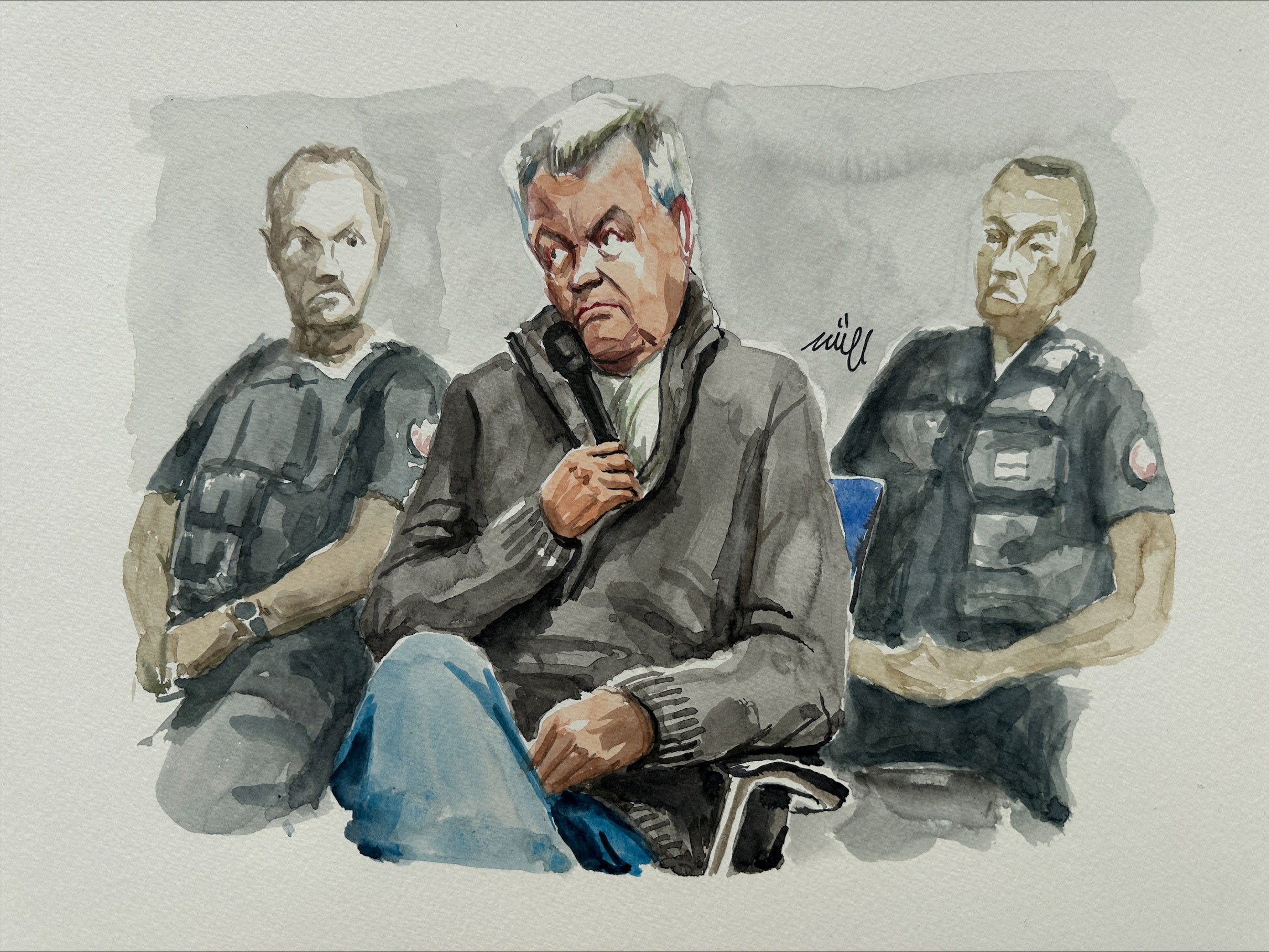
At least three of the men were local; all were unsettlingly ordinary. Among the accused are a fire warden, a student, a journalist, and a nurse from the local hospital. Their ages range between 26 and 74. There is no shared profile between them. The men appearing in the dock are not the monsters women are told to fear in alleyways – they are everyday fathers, brothers, pillars of the community. Their only commonality is in the dehumanising acts they each performed on Gisele.
Some of the men have admitted raping her, but the majority have contested the charges on the basis that they were acting as part of a sexual game or simply unable to control their sexual behaviour. One even claimed that he was so frightened of Dominique, whom he described as a “psychopath”, that he raped Gisele in order to avoid being attacked by her husband.
Despite the number of men involved and the thousands of images taken, it was only when police arrested Dominique, a retired electrician, for attempting to film up a woman’s skirt, that any evidence of what he was doing to his wife surfaced at all. At his home, police uncovered more than 20,000 photos and videos of attacks on his wife, meticulously labelled with the name and the date, in a master folder titled “Abuse”. There were at least 83 men captured in the images they found, but they could only identify 50 of them. Those on trial are facing charges of rape and sexual assault, in a case that is scheduled to last for four months. Few believe that the crimes stop there.

One additional man is on trial, but he is not charged with raping Gisele. Jean-Pierre Marechal, 63, is accused of procuring drugs from Dominique and copying his methods. He spiked his wife’s food with drugs, tweaking the dose until he “got it right”, and stands charged with repeatedly raping her. Dominique is allegedly recorded in at least three of the 12 assaults on the mother-of-five.
At the opening of the trial, Gisele chose to waive her right to anonymity so that the full, unfiltered details of what she had been subjected to could be broadcast to the world; she later fought for the videos of crimes committed against her to be screened in court so that those present could “look rape in the eye”.
Before the allegations surfaced, Gisele lived a quiet life with her husband, with whom she had three children, Caroline, Florian and David – “We weren’t rich, but we were happy; even our friends said we were the ideal couple,” she said of their marriage. In 2020, she left their family home with two suitcases: “all that was left of 50 years” of the life she had built with her childhood sweetheart. She has since remarked that she “no longer [has] an identity”, yet, each week, her strength seems even more abundant. She is regularly cheered in and out of court, morning and night, by hundreds of women.
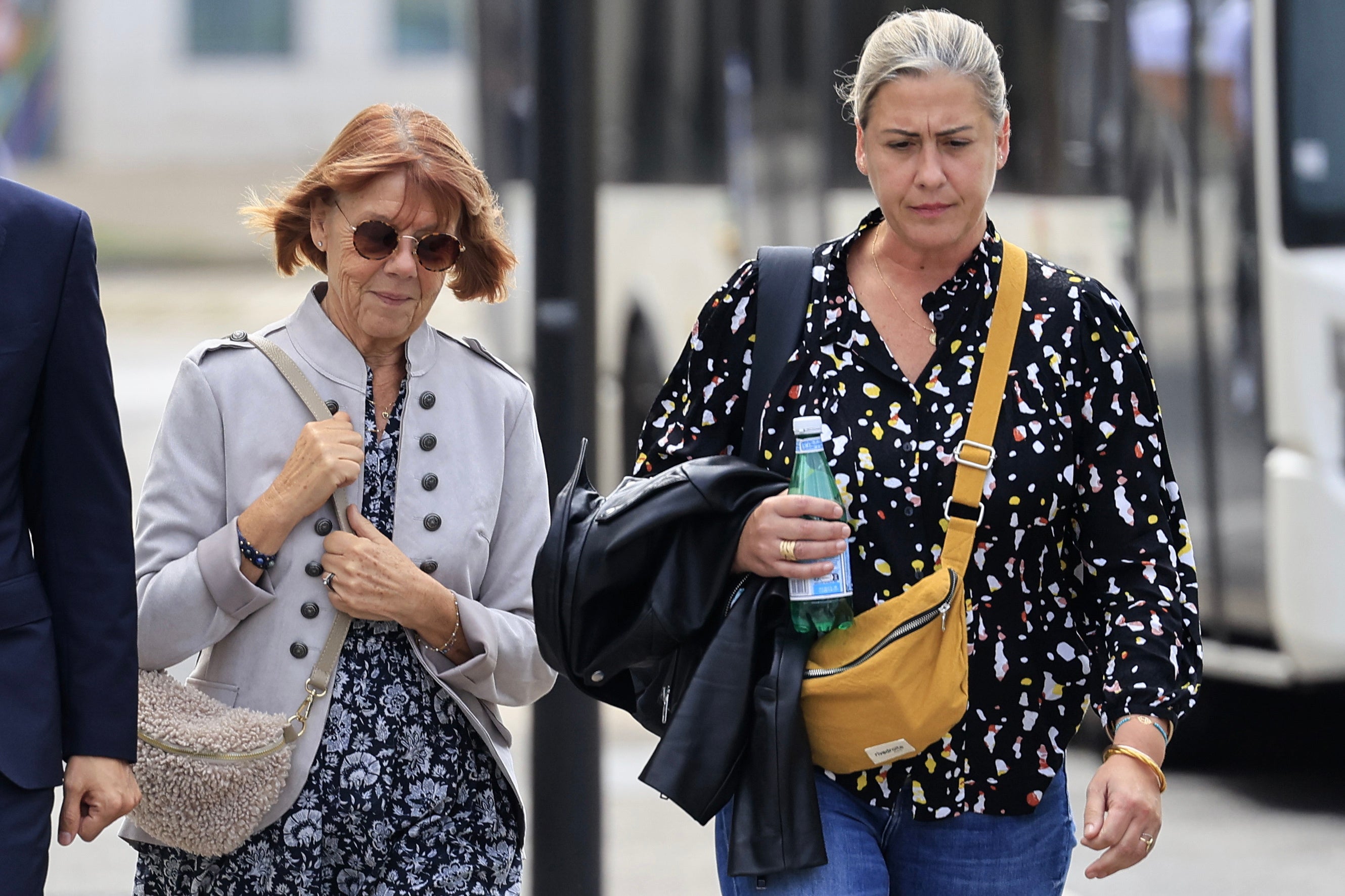
Her message is simple: “Shame has to change sides.” That is why Arnaud Gallais and Gisele’s daughter, Caroline Darian, co-founded the organisation “M’endors Pas” – meaning “I do not go to sleep” – which campaigns against soumission chimique, or “chemical submission”. The term refers to the administration of a psychoactive substance, either without the knowledge of the victim or by placing them under duress, in order to commit criminal acts.
Caroline also testified that she was drugged by her father, after she was shown two pictures of herself by police. The photos were reportedly discovered in a computer folder named “Around my daughter, naked”.
“From the start, Gisele Pelicot said ‘I understand why rape victims don’t file a complaint’, and ‘I have the impression of being in the dock’,” Arnaud tells me over the phone from France. “This trial is an opportunity to recall that the European Court of Human Rights has rendered several judgments on secondary victimisation – basically, the way in which justice can add to the punishment to victims.”
That is the harrowing reality – that all over France, all over the UK and the rest of the world, women are being harmed in the dark, by men they know and trust
“I met Caroline several years ago,” says Arnaud, “and one day she told me what she was going through; what her mother and her whole family were going through. She very quickly told me of her wish to create an association. It was quite natural that I accepted.” The pair set up M’endors Pas in 2023, alongside Arielle Schwab, the managing director of Havas Paris, a PR and communications agency, with the simple mission of raising crucial awareness and changing the law and culture around chemical submission.
The fact is, they say, that despite Dominique’s high-profile trial, chemical submission is a little-known phenomenon and gravely underestimated, despite affecting multiple profiles of victim: “women, men, children, infants, elderly people, in all social backgrounds”. The extent of it is difficult to quantify – sexual assault of any kind is vastly underreported, and the nature of chemical submission leaves victims physically and mentally vulnerable after the fact. Victim-blaming is rife in cases involving drug use, and, as most will testify, often that is dangerously internalised.
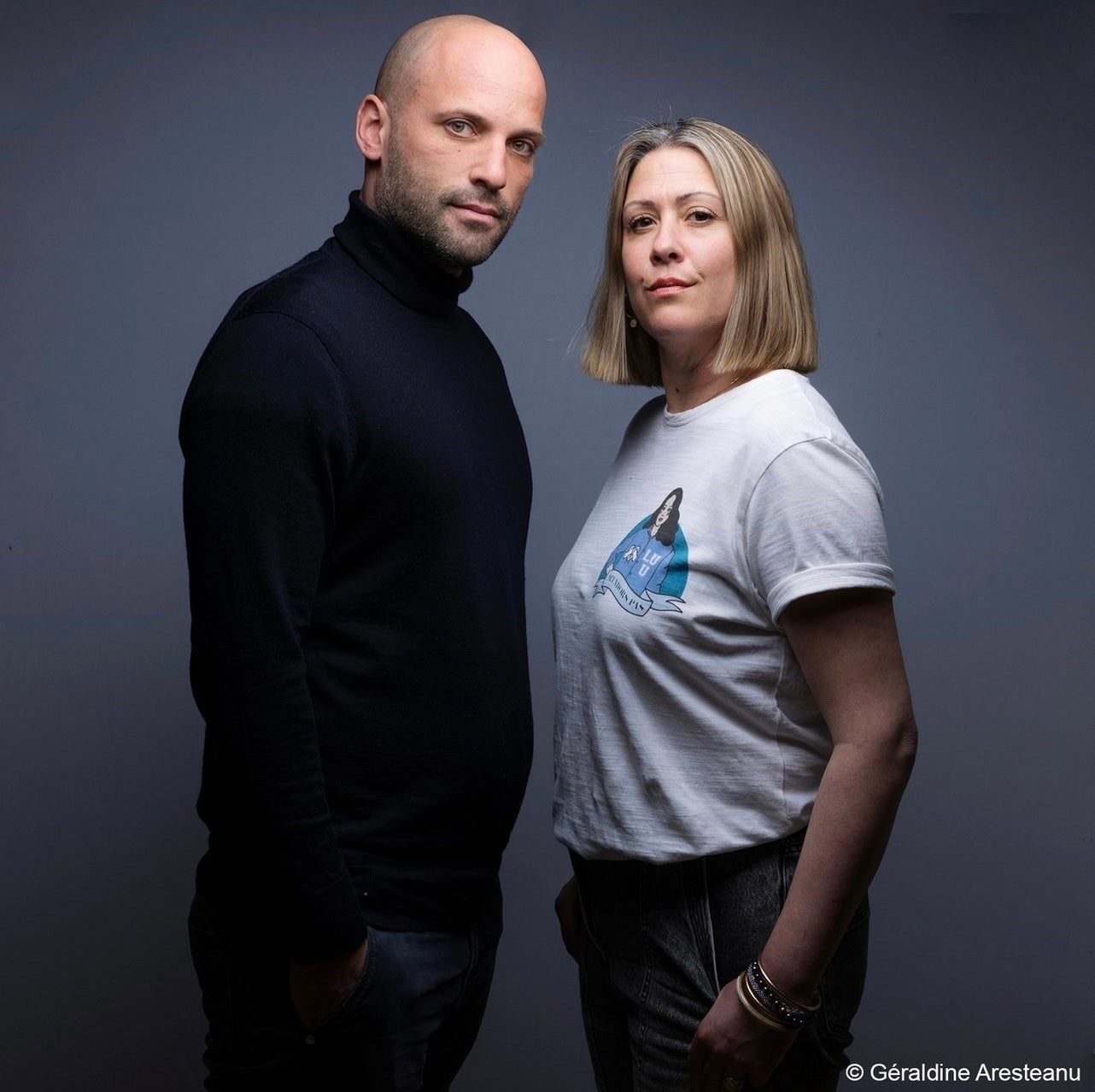
“The reaction from society was at first one of astonishment,” explains Arnaud, an anthropologist and a director in child protection for 15 years. Arnaud was the victim of double incest between the ages of 8 and 12 – first by his great uncle, then by two cousins – and also founded MouvEnfants, for survivors of childhood violence and their allies.
“I think many people are afraid to imagine that someone in their family, a loved one, could put them to sleep with medication. Then, from the astonishment that this case caused, we moved to a significant wave of support. Indeed, everyone can identify with Caroline, Gisele and their family.” There is, he says, a slow dawning that this could be happening to anyone – and that we should all get behind this movement. “They look at this case and think, ‘So, if them, why not us?’ Society feels helpless in the face of this situation. That’s what motivated us to begin #MendorsPas.”
To date, the pair have received “hundreds” of testimonials, Arnaud tells me, adding: “We would like the French state to carry out a quantitative study so that the figures are known.”
And that is the harrowing reality – that all over France, all over the UK and the rest of the world, women are being harmed in the dark, by men they know and trust. Women like Jane. “How many more women like me are watching this trial and finally finding the language for what happened to them?” asks Jane, who had never taken drugs before meeting her ex.
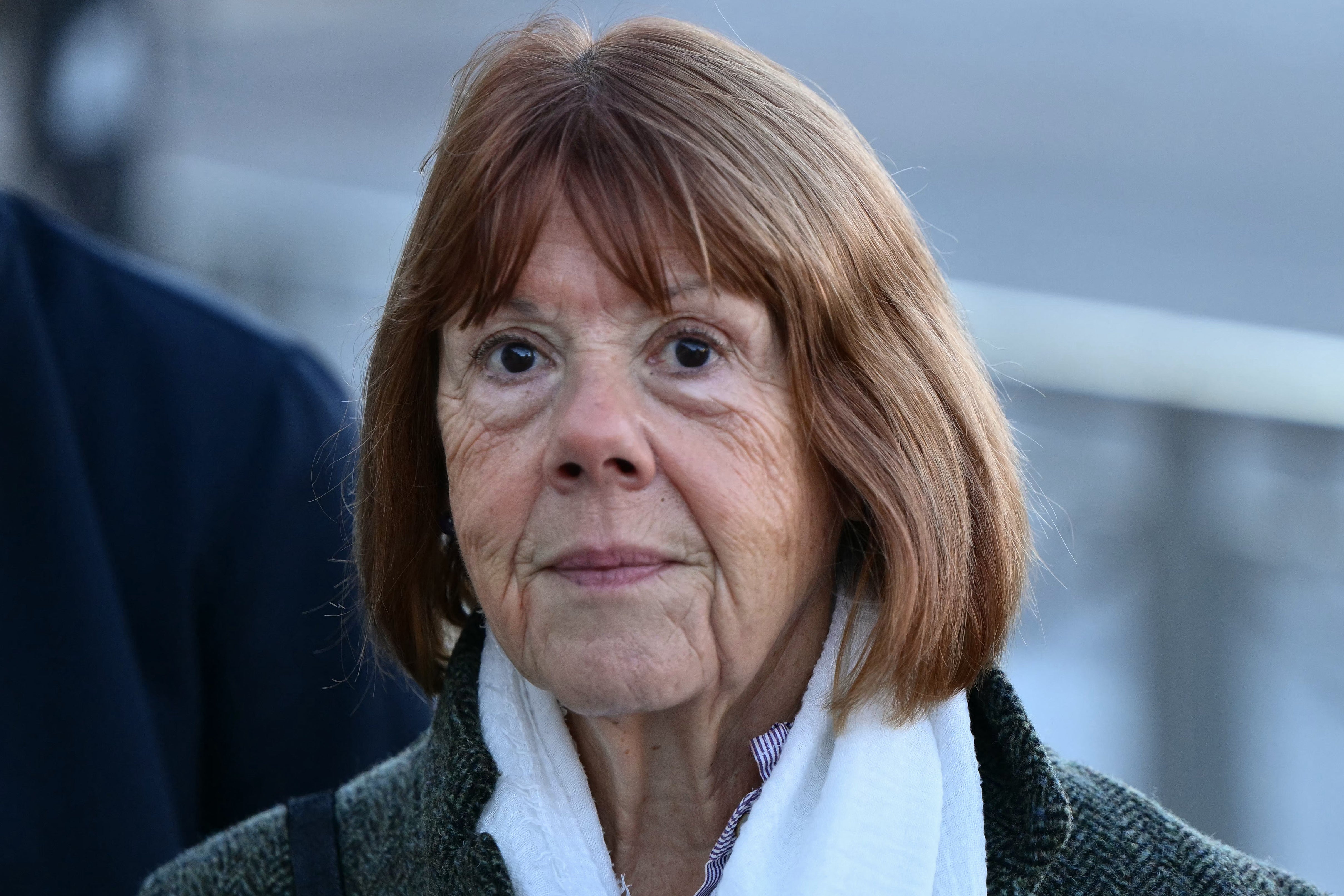
Jane, from Ontario, Canada, finally left her relationship a year after it began. “There was one particular night when I realised what had been happening,” she says. “We hadn’t seen each other all day, and he picked me up and took me to the store. I was in there by myself while he waited in the car, and suddenly I was just... high. I could barely walk.
“I got back to the car, and that’s when I confronted him. I said, ‘Did you give me something?’ I was not OK. He just had this bored expression, while I was freaking out. Eventually, he confessed it was fentanyl, and put on a show – he said it was a mistake and meant for him; that it was an accident. We’d been sharing a sports drink.
“He was crying. I was so affected by his gaslighting that I even ended up comforting him.”
But it was the catalyst that helped Jane put two and two together. “The thing is, I was looking for what we’d been taught as women, that being drugged and assaulted is always being roofied, by a stranger. I didn’t know this could happen to me, by someone who I knew and trusted.”
Slowly, Jane’s confusion began to clarify. The fragments of memory she had were hot with shame – she had flashes of sexual encounters that were “not something I’d choose to do, or things that I had explicitly told him I did not want to do”. “He obviously wanted me to be disinhibited, so he could do what he wanted,” she explains.
I was looking for what we’d been taught as women, that being drugged and assaulted is always being roofied, by a stranger. I didn’t know this could happen to me, by someone who I knew and trusted
She’s reluctant to go into details about how she ultimately proved what he was doing, so as not to inform other predatory men, but soon after that incident, she managed to disentangle herself from John’s abuse – and, despite doubting and blaming herself, she has never looked back.
The experience has left Jane unable to date for five years, her ability to trust decimated to the point where she couldn’t even talk to a therapist. She also never informed the police – like many women, she had little faith that she’d ever see justice. But with the confirmation from a doctor that she was likely to have been drugged, and the strength she’s found from watching Gisele’s defiance in the face of injustice, she is now feeling able to confront and move past her trauma.
“It wasn’t until I read her case and what happened to her that I was able to accept what had happened to me,” she explains. “I had so much doubt. My friends and family were supportive of me, but I know they doubted me too, which added to it. It just doesn’t seem possible when you really consider it. Until now, I also didn’t have the language for it. But I have no doubt now that so many more women are in the same position.
“What I eventually realised was that if I could time-travel back to the girl who was about to go on that first date, and tell her everything that was going to happen, that person didn’t have the capacity to understand what I was about to go through – and that most people, unless they’ve been through it, do not genuinely understand it.”
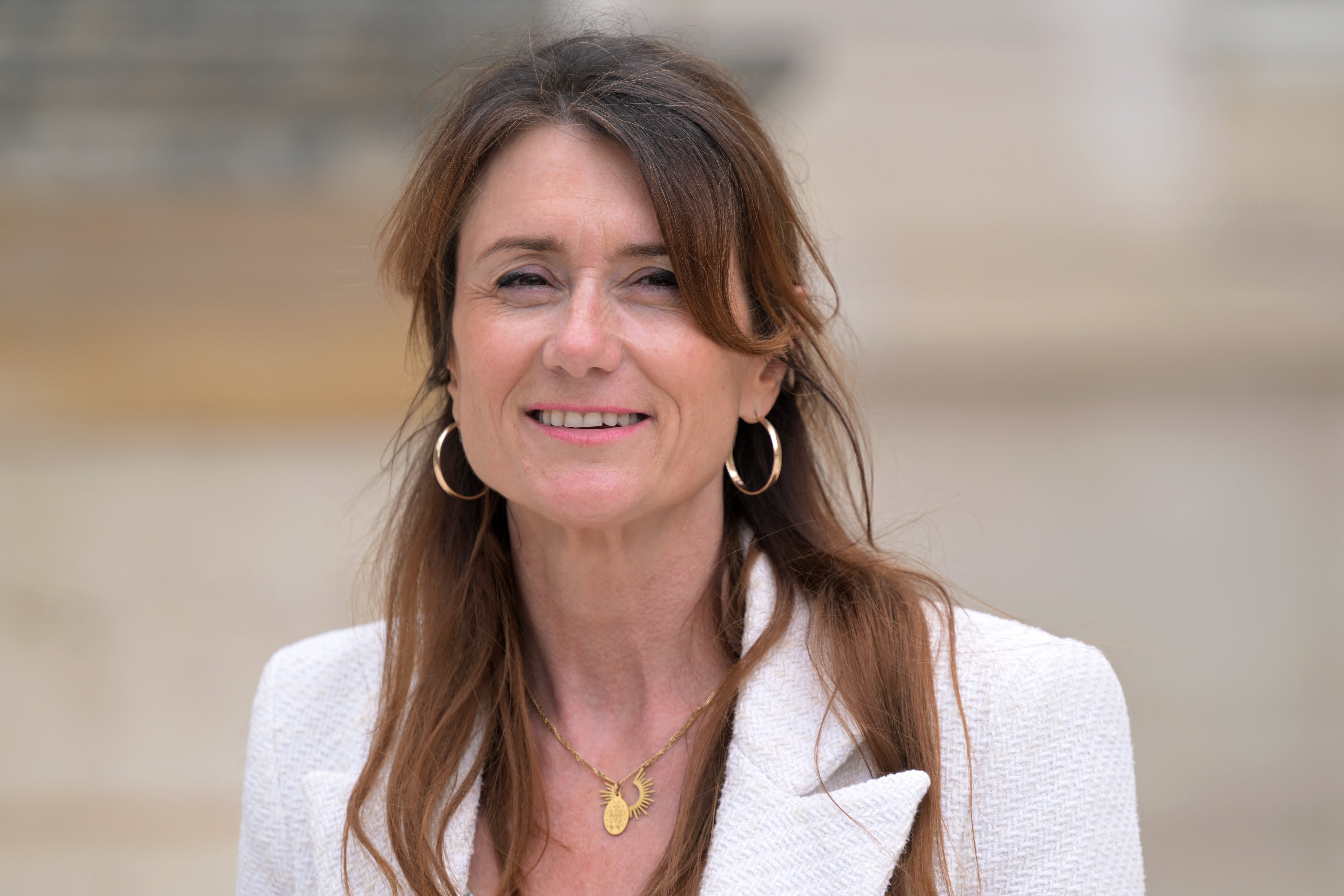
“There will never be another Gisele, that’s what we want,” Arnaud says of M’endors Pas – a movement that is advocating for women who think they have been in this position. Their social media campaign #PasDansMonVerre – #NotInMyGlass – is raising awareness of the spectrum of chemical abuse by asking women to make a video pouring out the contents of their drink. They make it clear: chemical submission is not limited to the use of GHB, or being “roofied”; it can involve stimulants or prescription drugs, too.
Sandrine Josso, a member of the French assembly entrusted with a parliamentary mission by the government, delivered several impassioned speeches on this issue. She too is a victim – she says her drink was spiked with ecstasy by senator Joel Guerriau in November 2023. He has since claimed that he “didn’t mean to” drug her and has apologised to Josso.
Now M’endors Pas is calling for women to stand together, to “demand imperative justice which passes through the law ... to challenge authorities on the fact that this is a public health issue that requires action.” The organisation is calling for the implementation of a “kit” to detect the crime, and for increased training for doctors. Gisele went to see her GP several times before the scale of abuse was uncovered, convinced she had Alzheimer’s disease following years of strange memory lapses, unaware that she was being systematically drugged with sedatives and anti-anxiety medication.
Change is imperative, say M’endors Pas – this is an unseen epidemic. Right now we rely on the courage of women like Gisele, not the safety of the law or the justice of the courts, to protect women. Much like #MeToo, #MendorsPas, standing on the shoulders of Gisele Pelicot, hopes to give victims strength in numbers to bring more predatory men to justice.
“Thanks to all of you, I have the strength to fight this battle to the end,” Gisele said in a video posted by La Provence. “I dedicate [this fight] to all the people, women and men, throughout the world, who are victims of sexual violence.
“To all these victims, I want to say to them today, ‘Look around you – you are not alone.’”
Like Arnaud, like her daughter Caroline, like Jane and millions more, these victims walk among us... as the men who harm us do, too.
Subscribe to Independent Premium to bookmark this article
Want to bookmark your favourite articles and stories to read or reference later? Start your Independent Premium subscription today.
